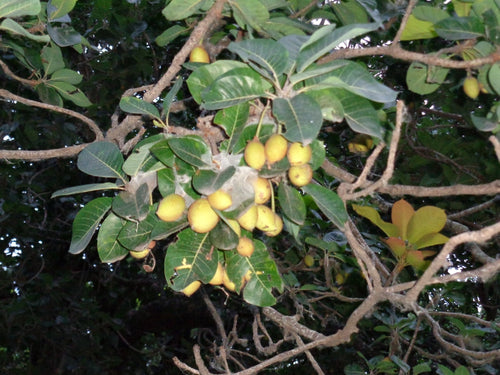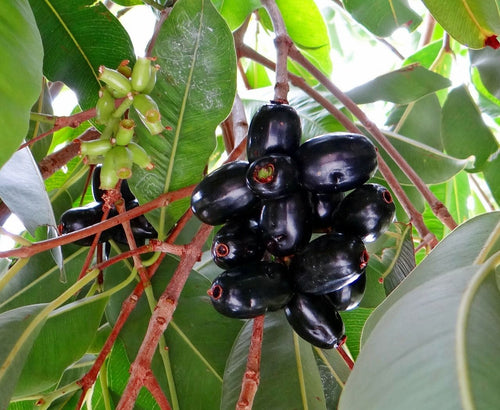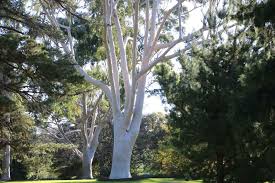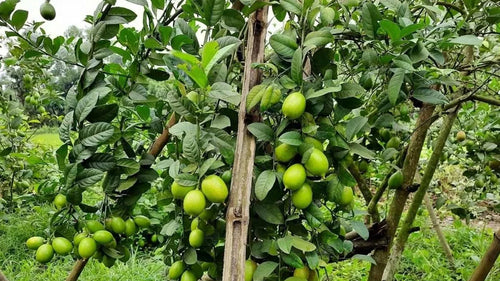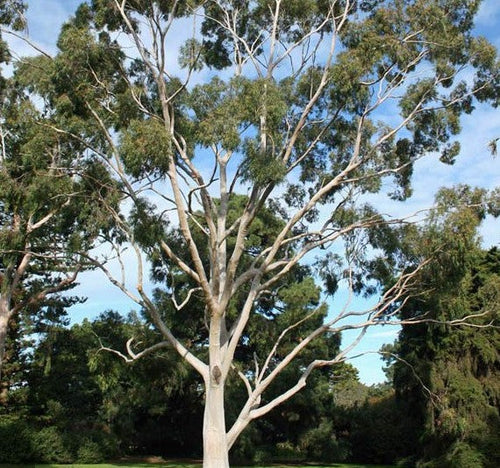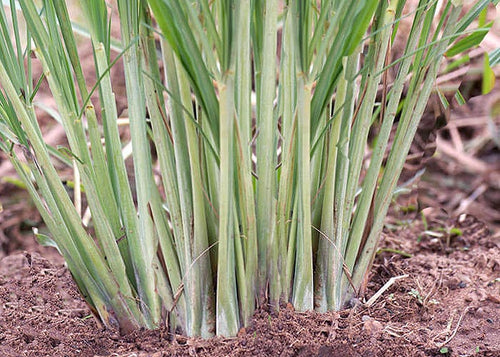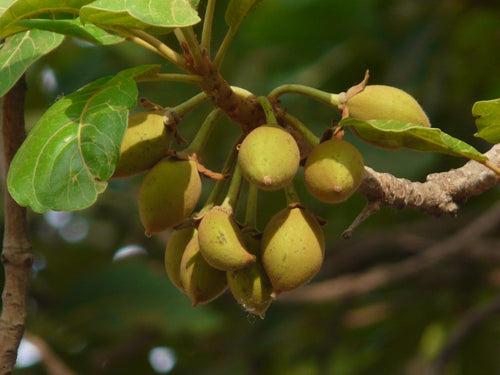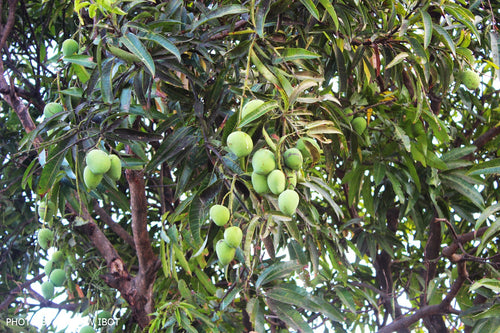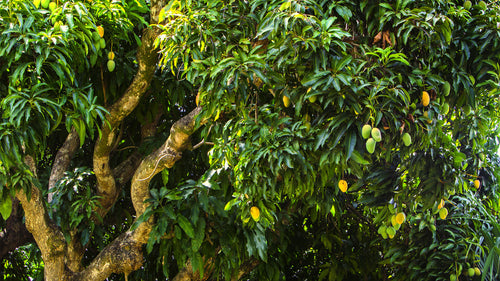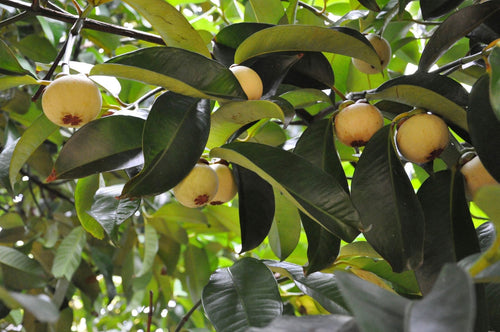A Century and Beyond: Bank of Baroda's Green Celebration for 117 Years
Bank of Baroda (BoB), one of India’s largest and oldest public sector banks, celebrated its 117th Foundation Day with an inspiring tree plantation ini Read more
Plantation Site Gallery
Project Update 2
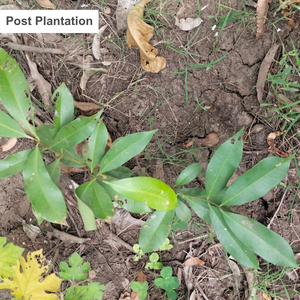
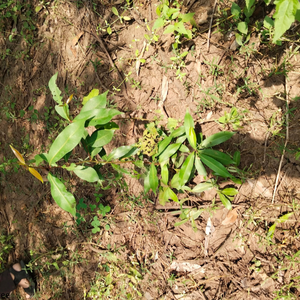
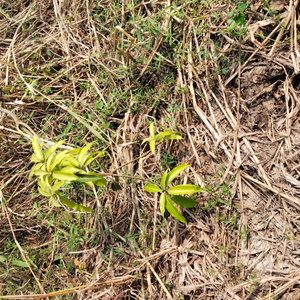
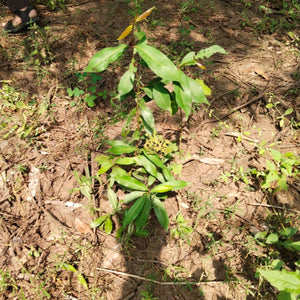
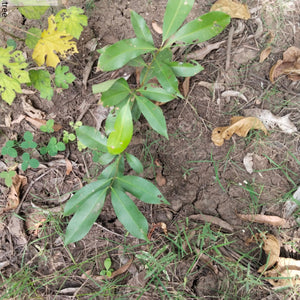
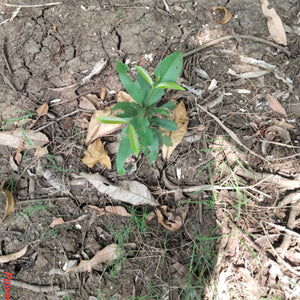
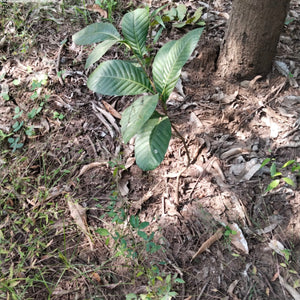
Project Update 1
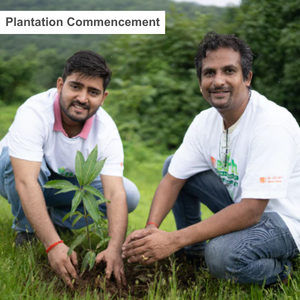
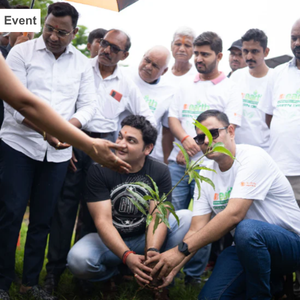
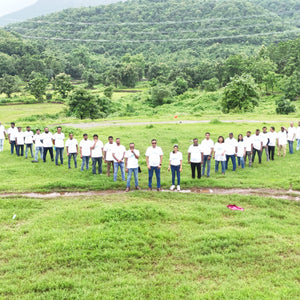
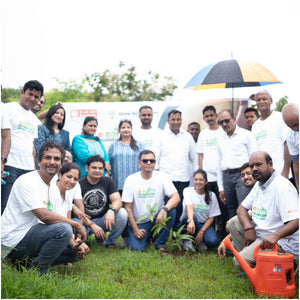
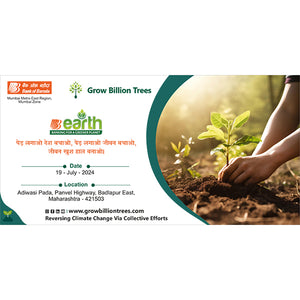
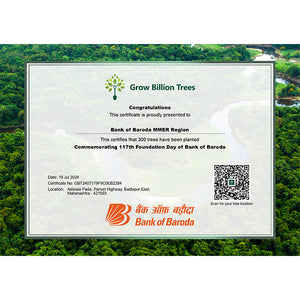

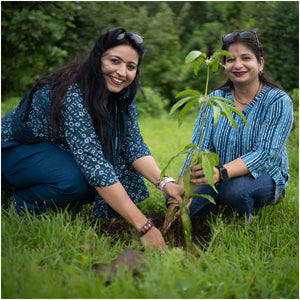
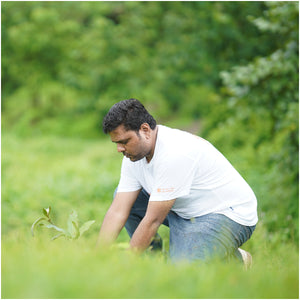
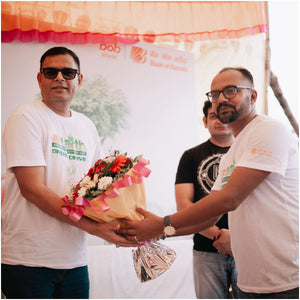
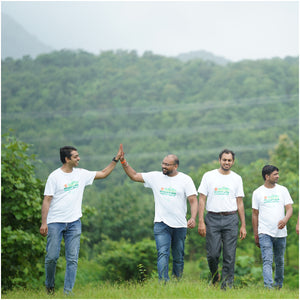
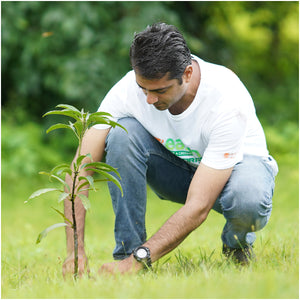
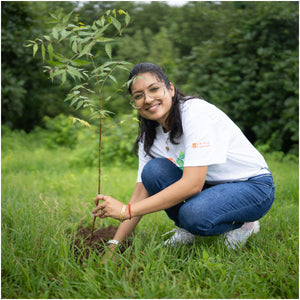
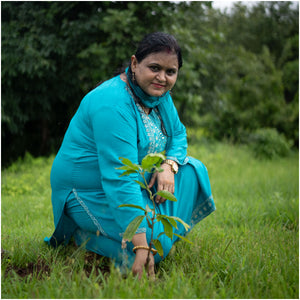
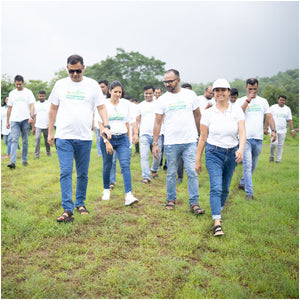
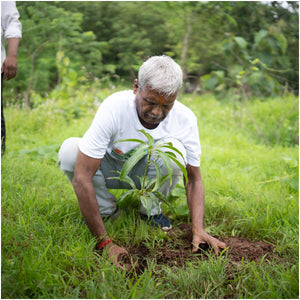
Digital Forest
Forest with 300 Trees planned
Want to plant your tree now?
Plant a Tree @ 299A Century and Beyond: Bank of Baroda's Green Celebration for 117 Years
Bank of Baroda (BoB), one of India’s largest and oldest public sector banks, celebrated its 117th Foundation Day with an inspiring tree plantation initiative under the community forest concept. Established in 1908 in Vadodara, Gujarat, BoB has always championed sustainability alongside its commitment to financial inclusion. This year, the bank reinforced its dedication to environmental stewardship by focusing on enhancing green cover and fostering ecological balance.
The community forest plantation involved active participation from employees, customers, and local communities, emphasizing collective responsibility toward environmental conservation. Through this initiative, BoB aimed to create green spaces that benefit both the environment and society, serving as a symbol of growth and sustainability.
This initiative reflects Bank of Baroda’s innovative and people-centric approach, aligning its financial services to nurture a sustainable future. By combining the values of community service and environmental care, the bank continues to leave a meaningful legacy that mirrors its ethos of growth for all.
Project Planning & Execution
No of Trees: 300
Plantation Location: Satsang Vihar, Hendre Pada, Badlapur, Mumbai, Maharashtra - 421503
Plantation Date: 19th July 2024
Names of Species: Lemon, Mango, Shisham, Jamun, Karanj, Mahua
Species Selection & Its Benefits:
For Bank of Baroda’s community forestry initiative, the tree species were carefully selected to align with the local ecosystem and maximize ecological benefits. A diverse mix of native, shade-providing, and fruit-bearing species, including Lemon, Mango, Shisham, Jamun, Karanj, and Mahua, was planted to enhance biodiversity, provide habitats for wildlife, and support environmental sustainability. These species were chosen for their ability to improve air quality, prevent soil erosion, and enhance water retention while also offering shade and food resources for local communities. This thoughtful selection ensures that the trees contribute both ecologically and socially, creating a lasting positive impact on the community landscape.
Beneficiaries Details
-
Target Population: Employees, stakeholders, and local community members of Badlapur.
-
Age Group: All age groups focus on adults to seniors
-
Gender: Inclusive of all genders
- Social & Economic Status: Open to all social and economic backgrounds, emphasizing community involvement
Planting Methodology and Its Advantages
Community Forest: A community forest is a carefully planned green space where trees, shrubs, and vegetation are planted to support local ecosystems, enhance biodiversity, and provide social and economic benefits to nearby communities. It plays a crucial role in environmental conservation by improving air quality, preventing soil erosion, and increasing water retention. Additionally, community forests contribute to climate change mitigation by absorbing carbon dioxide while offering shade, fruit, and other resources to local populations. By fostering a strong connection between people and nature, community forests promote sustainable living and create long-term ecological and social benefits.
Advantages of Community Forest
-
Biodiversity and Wildlife Conservation: By creating natural habitats, community forests support diverse flora and fauna, promoting ecological balance and enhancing biodiversity in the region.
-
Climate Change Mitigation: Community forests play a vital role in capturing and storing carbon dioxide, mitigating climate change, and improving resilience against extreme weather conditions, such as droughts and storms.
-
Cooling Effect: Community forests help regulate local temperatures by providing shade and facilitating transpiration, reducing heat stress in rural and semi-urban areas. This natural cooling effect helps create a more comfortable environment for surrounding communities.
-
Improved Air Quality: Trees in community forests absorb pollutants like carbon dioxide, sulfur dioxide, and particulate matter, leading to cleaner air and reducing respiratory issues for nearby residents.
-
Water and Soil Conservation: Community forests play a vital role in soil conservation and water management by stabilizing soil with extensive root systems, preventing erosion from wind and heavy rainfall, and reducing land degradation.
-
Resilience to Natural Disasters: Properly managed community forests can help reduce the impact of natural disasters, such as floods and landslides, by stabilizing the land and acting as natural barriers.
-
Livelihood and Economic Benefits: Community forests provide valuable resources such as fruits, timber, medicinal plants, and fodder, supporting local economies and offering additional income opportunities for farmers and rural communities.
-
Educational Value: The community forest acts as a living classroom, offering insights into sustainable land management practices and environmental conservation. It provides opportunities for local communities, schools, and organizations to learn about biodiversity, water conservation, and the importance of ecological balance, fostering a culture of environmental awareness.
- Cultural and Social Benefits: Community forests serve as spaces for social gatherings, traditional ceremonies, and educational initiatives, strengthening community bonds and fostering environmental stewardship among local populations.
Activities During Tree Plantation
As part of Bank of Baroda’s 117th Foundation Day celebration, the Mumbai Metro East Region (MMER) organized a vibrant plantation drive under the Baroda Earth Initiative to contribute to a greener city. During the tree plantation initiative, conducted under the community forest concept as part of its CSR activities, all plantation tasks were meticulously executed, ensuring effective and sustainable planting practices. The initiative was carefully planned to align with environmental conservation goals and create a long-term positive impact.
Employees of Bank of Baroda, along with Mr. Kamlesh Rathore, Regional Head (MMER), Ms. Preeti Agarwal, Regional HR Head, and Ms. Nidhi Singh, Co-founder and CEO of GBT, actively participated in the plantation activities. They shared their thoughts on the significance of this initiative, highlighting its role in expanding green spaces and fostering ecological balance.
The participants enthusiastically planted 300 fruit-bearing trees, carefully placing them in pre-dug pits and watering them to ensure a strong start. The event symbolized growth, sustainability, and Bank of Baroda’s enduring commitment to both nature and the community. This collective effort strengthened a sense of purpose and unity, reinforcing the values that the Bank of Baroda has championed for over a century.
Conclusion Elements
Impact
Direct Impact
| Parameters | Values | References |
| No. of Trees Planted | 300 | |
| Green Cover (Acres) | 0.15 | |
| Carbon Sequestration Potential (KG) | 20 |
Small to medium-sized trees can sequester around 10–48 kilograms (22–106 pounds) of CO₂ annually. https://onetreeplanted.org/blogs/stories/how-much-co2-does-tree-absorb |
| Carbon Sequestration by 300 mature trees ( Tons/year) | 6 tons | No. of Trees x Carbon Sequestration by 1 mature trees per year |
| Carbon Credit Equivalent | 6 | One carbon credit is equivalent to one tonne of carbon dioxide or the equivalent amount of another greenhouse gas. |
| Carbon Footprint of an avg Indian Citizen (Tons/Year) | 1.8 | https://www.iea.org/countries/india/emissions |
| Offsets Annual Carbon Footprint of (Adults) | 3 | Carbon offset by 300 mature trees per year / Carbon Footprint of an avg Indian Citizen per year |
Indirect Impact
Community Impact
-
Improved Public Health: By enhancing air quality and providing shade, the community forest contributes to better public health. Green spaces encourage outdoor activities, reducing stress, promoting mental well-being, and lowering the risk of respiratory diseases.
-
Economic Benefit: The plantation of fruit-bearing and indigenous trees such as Lemon, Mango, and Mahua provides long-term economic benefits to the local community by generating opportunities for sustainable livelihoods, improving soil quality for agriculture, and enhancing local biodiversity, which supports ecotourism and related activities.
-
Environmental Awareness: Engaging employees and local communities in tree plantations raises awareness about environmental conservation and fosters sustainable habits in everyday life.
-
Employee Morale: The initiative instilled a sense of pride and collective responsibility among employees, strengthening team bonds and reinforcing their alignment with the bank’s values.
-
Inspiration for Change: The success of this initiative has motivated other organizations and local communities to take up similar environmental efforts, promoting a culture of sustainability.
-
Cultural Shift: By actively participating in reforestation efforts, employees and community members developed a long-term commitment to environmental stewardship, advocating for green practices in their personal and professional lives.
- Higher Property Values: Proximity to green spaces often leads to higher real estate values, benefiting local economies.
Environmental Impact
-
Carbon Sequestration: The trees planted through Bank of Baroda’s community forest act as carbon sinks, absorbing carbon dioxide and contributing to climate change mitigation.
-
Soil Health Improvement: The initiative improves soil quality by adding organic matter, enhancing fertility, and supporting the growth of native vegetation.
-
Erosion Prevention: The deep root systems of planted trees help stabilize soil, preventing erosion caused by wind and water, thereby protecting nearby lands and infrastructure.
-
Biodiversity Conservation: By creating a diverse green space, the project provides habitats for various species, including birds, pollinators, and beneficial insects, strengthening the local ecosystem.
-
Water Cycle Regulation: Trees aid in groundwater recharge by improving water retention in the soil, reducing surface runoff, and contributing to a more balanced and sustainable water cycle.
- Microclimate Regulation: The plantation helps moderate temperature fluctuations, increase humidity, and reduce wind speeds, fostering a favorable environment for both the community and local wildlife.
Achievements
SDG Goals Achieved through Community Forest:
-
SDG 1: No Poverty- Bank of Baroda’s Community Forest Initiative contributes to SDG 1: No Poverty by enhancing local livelihoods through sustainable practices. The plantation of fruit-bearing and native trees in Badlapur, Maharashtra, supports economic opportunities for nearby communities by providing resources such as fruits, fodder, and medicinal plants.
-
SDG 2: Zero Hunger- Fruit-bearing trees contribute to food security by providing nutritious resources and supporting efforts to combat hunger and malnutrition in underserved areas.
-
SDG 3: Good Health and Well-being- Trees improve air quality, reduce pollution-related diseases, and promote mental well-being by creating green spaces for relaxation and physical activity.
-
SDG 4: Quality Education- The Bank of Baroda initiative fosters environmental awareness and lifelong learning, educating employees and communities on the importance of sustainability and ecological balance.
-
SDG 6: Clean Water and Sanitation- Trees enhance groundwater recharge, prevent soil erosion, and reduce water pollution, ensuring cleaner and more sustainable water resources for communities.
-
SDG 8: Decent Work and Economic Growth- Green job creation through afforestation activities supports economic growth, offering employment in site preparation, sapling maintenance, and forest management.
-
SDG 9: Industry, Innovation, and Infrastructure- Sustainable infrastructure development through green initiatives like community forests promotes innovative solutions to environmental challenges, building long-term resilience.
-
SDG 11: Sustainable Cities and Communities- The Bank of Baroda Community forests improve urban livability by reducing pollution, mitigating the heat island effect, and providing green spaces for recreation and well-being.
-
SDG 12: Responsible Consumption and Production- Sustainable resource management through tree plantations encourages responsible consumption, ensuring the long-term availability of renewable resources like fruits and timber.
-
SDG 13: Climate Action- Trees act as carbon sinks, reducing greenhouse gas emissions and contributing to climate change mitigation while promoting environmental awareness and conservation.
-
SDG 15: Life on Land- The Bank of Baroda initiative supports biodiversity, prevents land degradation, and combats deforestation by restoring ecosystems and providing habitats for various species.
- SDG 17: Partnerships for the Goal- Bank of Baroda's collaboration with Grow Billion Trees enhances collective action for sustainability, uniting employees, communities, and environmental stakeholders for a greener future.
ESG Achieved through Community Forest:
-
Environmental Impact: The tree plantation initiative undertaken by the Bank of Baroda for its 117th Foundation Day directly addresses pressing environmental concerns. By creating community forests, the bank contributes to reducing carbon emissions through enhanced carbon sequestration, improving air quality, and combating climate change. The initiative also aids in soil conservation by preventing erosion, improving water retention, and replenishing groundwater resources. Additionally, the community forests foster biodiversity by providing habitats for various species of flora and fauna, helping restore ecological balance. This activity underscores the bank’s commitment to protecting and revitalizing the environment for future generations.
-
Social Impact: The Bank of Baroda plantation initiative emphasizes community involvement and inclusivity by engaging employees and local communities in tree plantation activities. By involving diverse groups in creating and maintaining the community forest, the bank fosters environmental awareness and a collective sense of responsibility. The project also supports local livelihoods by creating green job opportunities in activities such as site preparation, sapling care, and forest maintenance. Moreover, the creation of green spaces contributes to the well-being of nearby communities by offering them cleaner air, recreational spaces, and resources like fruits and medicinal plants.
- Governance Impact: Through this initiative, the Bank of Baroda showcases exemplary governance by aligning its sustainability efforts with global frameworks such as the United Nations Sustainable Development Goals (SDGs). The initiative reflects the bank’s commitment to ethical practices, transparency, and corporate responsibility. By partnering with Grow Billion Trees, the bank ensures efficient resource allocation and impactful implementation of its green projects. The initiative also sets a benchmark for integrating environmental, social, and governance principles into corporate strategies, reinforcing Bank of Baroda’s reputation as a responsible and forward-thinking organization.
Building Communities
One of the most profound outcomes of Bank of Baroda’s community forestry initiative was the deep-rooted sense of togetherness and environmental consciousness it nurtured. By engaging local communities, employees, and volunteers, the project became a unified effort to restore green spaces, reinforcing a collective vision for sustainability.
-
Empowering Communities: This initiative encouraged local participation, equipping individuals with knowledge about community forestry and sustainable practices. By taking an active role in tree plantation and care, participants felt a stronger connection to nature and their surroundings, fostering long-term environmental stewardship.
-
Fostering Partnerships: Bank of Baroda’s collaboration with Grow Billion Trees and local communities showcased the power of partnerships in driving ecological and social change. By working together, diverse stakeholders contributed to a shared mission of creating greener and healthier environments.
-
Creating a Ripple Effect: As communities witnessed the benefits of this initiative- improved air quality, biodiversity growth, and enhanced green spaces- their enthusiasm inspired others to take part. This cascading effect expanded the impact, making community forestry a movement rather than just a project.
This initiative underscores that sustainability is most effective when it is a shared responsibility. It’s not just about planting trees; it’s about cultivating a greener mindset, strengthening bonds, and leaving a lasting legacy of environmental and social well-being.
Commitment by Grow Billion Trees
Trees for Corporates
Tree Plantation for CSR
Most Popular
1. Tree Plantation for Environmental Sustainability Tree plantation initiatives, like those led by Bank of Baroda, are essential for fostering environmental sustainability. As cities expand, green spaces are often overshadowed by concrete jungles. However, these initiatives play a vital role in reversing the damage by increasing tree cover, purifying air, and reducing the urban heat island effect. Bank of Baroda’s community forest project is a prime example, not only helping to reduce the carbon footprint but also promoting a sustainable future. Trees absorb carbon dioxide and release oxygen, making them nature’s air purifiers. With more organizations stepping up to plant trees, we might just be able to reverse the climate crisis, one sapling at a time.
1. Tree Plantation for Environmental Sustainability Tree plantation initiatives, like those led by Bank of Baroda, are essential for fostering environmental sustainability. As cities expand, green spaces are often overshadowed by concrete jungles. However, these initiatives play a vital role in reversing the damage by increasing tree cover, purifying air, and reducing the urban heat island effect. Bank of Baroda’s community forest project is a prime example, not only helping to reduce the carbon footprint but also promoting a sustainable future. Trees absorb carbon dioxide and release oxygen, making them nature’s air purifiers. With more organizations stepping up to plant trees, we might just be able to reverse the climate crisis, one sapling at a time.
2. Corporate Social Responsibility and Green Initiatives Incorporating green initiatives into Corporate Social Responsibility (CSR) is more than just a trend; it’s a necessity. Bank of Baroda’s tree plantation program aligns perfectly with CSR goals by promoting environmental health while encouraging employees to actively engage in community betterment. By participating in initiatives like tree planting, companies help offset their environmental impact, showing that profits don’t have to come at the expense of the planet. This collaboration not only boosts the company’s image but also nurtures an ongoing commitment to sustainability among employees and communities alike.
2. Corporate Social Responsibility and Green Initiatives Incorporating green initiatives into Corporate Social Responsibility (CSR) is more than just a trend; it’s a necessity. Bank of Baroda’s tree plantation program aligns perfectly with CSR goals by promoting environmental health while encouraging employees to actively engage in community betterment. By participating in initiatives like tree planting, companies help offset their environmental impact, showing that profits don’t have to come at the expense of the planet. This collaboration not only boosts the company’s image but also nurtures an ongoing commitment to sustainability among employees and communities alike.
3. Community Forests and Biodiversity Bank of Baroda’s commitment to community forests isn't just about planting trees; it's about preserving biodiversity. Community forests create habitats for wildlife, preserve plant species, and protect ecosystems. The initiative helps restore balance to local environments by fostering a rich, diverse flora and fauna. As these forests grow, they provide a haven for animals, insects, and birds, contributing to the health of the overall ecosystem. By supporting biodiversity through their community forest efforts, Bank of Baroda sets an example for companies looking to make a positive impact on both the environment and wildlife conservation.
3. Community Forests and Biodiversity Bank of Baroda’s commitment to community forests isn't just about planting trees; it's about preserving biodiversity. Community forests create habitats for wildlife, preserve plant species, and protect ecosystems. The initiative helps restore balance to local environments by fostering a rich, diverse flora and fauna. As these forests grow, they provide a haven for animals, insects, and birds, contributing to the health of the overall ecosystem. By supporting biodiversity through their community forest efforts, Bank of Baroda sets an example for companies looking to make a positive impact on both the environment and wildlife conservation.
4. Employee Engagement in Green Initiatives Employee engagement goes beyond team-building exercises when companies embrace sustainability. Bank of Baroda’s tree plantation event for their 117th Foundation Day was a perfect example of how employees can actively participate in creating a greener world. Engaging employees in activities like planting saplings creates a sense of purpose and fosters a deeper connection to the company’s values. This hands-on involvement helps employees take ownership of sustainability efforts and cultivates a culture of responsibility that extends beyond the workplace. In turn, it helps align personal and corporate values toward a common cause—protecting the planet.
4. Employee Engagement in Green Initiatives Employee engagement goes beyond team-building exercises when companies embrace sustainability. Bank of Baroda’s tree plantation event for their 117th Foundation Day was a perfect example of how employees can actively participate in creating a greener world. Engaging employees in activities like planting saplings creates a sense of purpose and fosters a deeper connection to the company’s values. This hands-on involvement helps employees take ownership of sustainability efforts and cultivates a culture of responsibility that extends beyond the workplace. In turn, it helps align personal and corporate values toward a common cause—protecting the planet.
5. Climate Change Mitigation Through Tree Planting Tree planting is one of the most effective strategies for combating climate change. Bank of Baroda’s tree plantation initiative, part of their community forest concept, actively contributes to reducing the effects of climate change. Trees act as natural carbon sinks, absorbing CO2 from the atmosphere and storing it for years. By planting more trees, companies like Bank of Baroda are playing a key role in reversing environmental damage. It's a simple yet powerful action that not only combats global warming but also brings immediate benefits like improved air quality, better soil retention, and reduced urban heat.
5. Climate Change Mitigation Through Tree Planting Tree planting is one of the most effective strategies for combating climate change. Bank of Baroda’s tree plantation initiative, part of their community forest concept, actively contributes to reducing the effects of climate change. Trees act as natural carbon sinks, absorbing CO2 from the atmosphere and storing it for years. By planting more trees, companies like Bank of Baroda are playing a key role in reversing environmental damage. It's a simple yet powerful action that not only combats global warming but also brings immediate benefits like improved air quality, better soil retention, and reduced urban heat.
6. Sustainable Green Practices in Corporate Culture In today’s world, adopting sustainable green practices is no longer optional for businesses—it’s a responsibility. Bank of Baroda’s community forest initiative is an excellent example of how companies can integrate sustainability into their corporate culture. By planting trees and fostering a sense of environmental responsibility among employees, Bank of Baroda demonstrates its commitment to long-term sustainability. Sustainable green practices, like these, not only reduce environmental footprints but also send a strong message to stakeholders about the company’s dedication to eco-friendly initiatives. It’s the perfect blend of business and environmental stewardship.
6. Sustainable Green Practices in Corporate Culture In today’s world, adopting sustainable green practices is no longer optional for businesses—it’s a responsibility. Bank of Baroda’s community forest initiative is an excellent example of how companies can integrate sustainability into their corporate culture. By planting trees and fostering a sense of environmental responsibility among employees, Bank of Baroda demonstrates its commitment to long-term sustainability. Sustainable green practices, like these, not only reduce environmental footprints but also send a strong message to stakeholders about the company’s dedication to eco-friendly initiatives. It’s the perfect blend of business and environmental stewardship.
7. Green Spaces in Urban Areas As cities become increasingly congested, the need for green spaces grows. Bank of Baroda’s community forest concept provides a solution by creating urban forests that improve the quality of life for city dwellers. These green spaces offer much-needed relief from the hustle and bustle of urban life. They serve as recreational areas, enhance mental health, and provide clean air. Additionally, these urban forests help mitigate pollution and heat in cities. The initiative highlights how companies can contribute to urban sustainability by promoting green spaces that enrich both the environment and people’s lives.
7. Green Spaces in Urban Areas As cities become increasingly congested, the need for green spaces grows. Bank of Baroda’s community forest concept provides a solution by creating urban forests that improve the quality of life for city dwellers. These green spaces offer much-needed relief from the hustle and bustle of urban life. They serve as recreational areas, enhance mental health, and provide clean air. Additionally, these urban forests help mitigate pollution and heat in cities. The initiative highlights how companies can contribute to urban sustainability by promoting green spaces that enrich both the environment and people’s lives.
8. Environmental Stewardship in Corporate India Environmental stewardship is vital for the future of corporate India, and Bank of Baroda has set a benchmark with its community forest tree plantation initiative. The bank’s leadership in environmental responsibility shows that businesses can play an active role in preserving natural resources while benefiting their employees and communities. As one of India’s leading financial institutions, Bank of Baroda’s green initiatives offer inspiration to other companies to adopt similar practices. By becoming stewards of the environment, organizations help pave the way for a greener, more sustainable future for the next generation.
8. Environmental Stewardship in Corporate India Environmental stewardship is vital for the future of corporate India, and Bank of Baroda has set a benchmark with its community forest tree plantation initiative. The bank’s leadership in environmental responsibility shows that businesses can play an active role in preserving natural resources while benefiting their employees and communities. As one of India’s leading financial institutions, Bank of Baroda’s green initiatives offer inspiration to other companies to adopt similar practices. By becoming stewards of the environment, organizations help pave the way for a greener, more sustainable future for the next generation.
FAQ
What is Bank of Baroda's tree plantation initiative?
Bank of Baroda's tree plantation initiative is part of our commitment to environmental sustainability, celebrated during our 117th Foundation Day. We focus on creating community forests by involving employees and local communities in tree planting activities. These efforts aim to increase green cover, improve biodiversity, and contribute to combating climate change, reflecting our dedication to preserving the environment for future generations.
How does the community forest concept benefit the environment?
The community forest concept focuses on creating green spaces that enhance biodiversity and restore ecological balance. By planting trees and creating sustainable green areas, we help improve air quality, reduce carbon footprints, and support wildlife. These community forests serve as vital ecosystems, providing habitats for various species while also preventing soil erosion and conserving water.
What role do Bank of Baroda employees play in the tree plantation initiative?
Bank of Baroda employees actively participate in the tree plantation initiative by planting saplings and taking care of them. During our 117th Foundation Day celebrations, employees were directly involved in the tree planting process, enhancing their connection with sustainability efforts. This initiative fosters teamwork, responsibility, and a shared commitment to environmental preservation among our workforce.
Why is tree plantation important for Bank of Baroda?
At Bank of Baroda, we believe that tree plantation is a crucial step toward environmental stewardship and corporate responsibility. By engaging in tree planting initiatives, we contribute to reducing the carbon footprint, enhancing biodiversity, and providing sustainable green spaces. These efforts align with our core values of fostering a positive impact on society and ensuring a cleaner, healthier environment for future generations.
What is the connection between tree plantation and climate change mitigation?
Tree plantation plays a critical role in mitigating climate change by absorbing carbon dioxide and releasing oxygen. Bank of Baroda’s tree plantation initiatives, like the community forest project, help reduce greenhouse gases in the atmosphere. As trees grow, they act as natural carbon sinks, contributing significantly to fighting global warming, improving air quality, and promoting a sustainable future for all.
How does Bank of Baroda engage the local community in tree planting?
We actively involve local communities in our tree plantation efforts by inviting them to participate in planting and maintaining trees. This initiative fosters a sense of shared responsibility and environmental awareness. By encouraging community participation, we aim to create lasting bonds between Bank of Baroda, employees, and residents, while also promoting a culture of sustainability within the communities we serve.
What impact does the community forest concept have on urban areas?
The community forest concept brings numerous benefits to urban areas, including cleaner air, reduced noise pollution, and cooler environments. Bank of Baroda’s community forest initiative helps transform urban spaces by providing green areas that improve residents' quality of life. These green spaces also serve as refuges for wildlife, offer recreational opportunities, and play a key role in improving urban health and well-being.
How do Bank of Baroda’s tree plantation efforts contribute to CSR goals?
Bank of Baroda’s tree plantation efforts are a core part of our Corporate Social Responsibility (CSR) initiatives. By creating community forests and promoting environmental sustainability, we demonstrate our commitment to social and environmental responsibility. These initiatives align with our broader CSR goals of giving back to society, enhancing local ecosystems, and supporting global sustainability efforts for a greener future.
What types of trees are planted in Bank of Baroda’s community forests?
Bank of Baroda’s community forest projects typically feature native tree species that thrive in the local ecosystem. These trees are chosen based on their ecological benefits, including enhancing biodiversity, improving soil health, and providing long-term environmental stability. By focusing on native species, we ensure that the community forest remains sustainable and supports local wildlife.
How does Bank of Baroda measure the success of its tree plantation programs?
Bank of Baroda evaluates the success of its tree plantation programs through various environmental indicators such as tree survival rates, increased green cover, and enhanced biodiversity. We also track the positive impact on local communities, including improved air quality and public engagement. Our goal is to create sustainable, thriving community forests that contribute to long-term environmental and social benefits.
- Choosing a selection results in a full page refresh.
- Opens in a new window.


